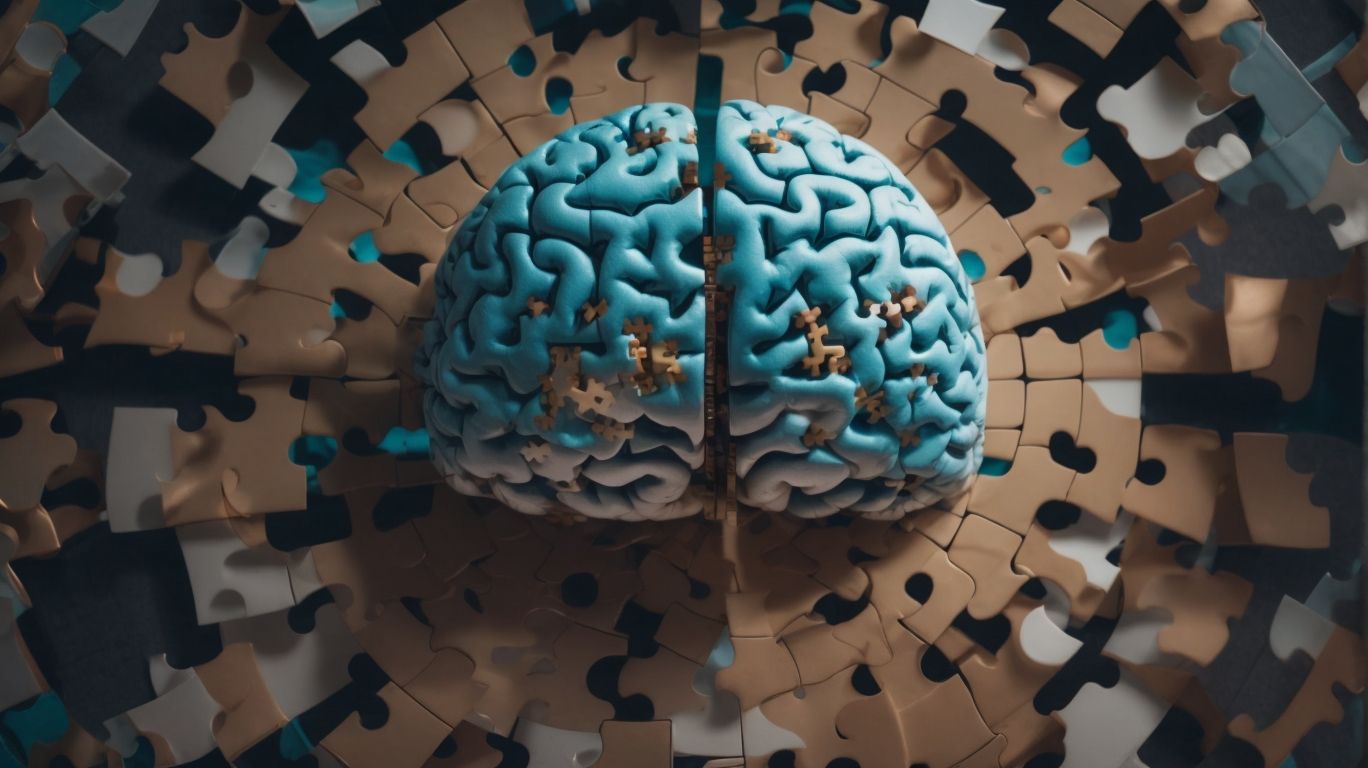IQ tests have long been a subject of fascination and controversy in the field of psychology. In this article, we will explore what IQ tests are, how they are administered, and the various types of IQ tests that exist.
We will also delve into the history of IQ testing, the controversies surrounding these tests, and their limitations. We will discuss how IQ tests are used in psychology, including their applications in education and employment. Join us as we demystify IQ tests and unravel the complex measurement of intelligence.
Contents
- 1 Key Takeaways:
- 2 What Are IQ Tests in Psychology?
- 3 How Are IQ Tests Administered?
- 4 What Is the History of IQ Testing?
- 5 What Are the Controversies Surrounding IQ Tests?
- 6 What Are the Limitations of IQ Tests?
- 7 How Can IQ Tests Be Used in Psychology?
- 8 Frequently Asked Questions
- 8.1 What are IQ tests, and how do they measure intelligence?
- 8.2 Why is it important to understand IQ tests in psychology?
- 8.3 Can IQ tests accurately measure a person’s intelligence?
- 8.4 What is the average IQ score, and what does it mean?
- 8.5 Do IQ tests have any cultural or societal bias?
- 8.6 Can a person’s IQ score change over time?
Key Takeaways:
- IQ tests measure a person’s cognitive abilities, including problem-solving, memory, and reasoning skills.
- There are different types of IQ tests, and they have evolved over time, but controversies still exist regarding their cultural bias and accuracy in measuring intelligence.
- IQ tests have limitations and cannot fully predict a person’s success in life, but they can be useful in education and employment settings.
What Are IQ Tests in Psychology?
IQ tests in psychology are standardized assessments designed to measure a person’s cognitive abilities, intellectual potential, and mental functioning.
In psychology, IQ tests serve as crucial tools for evaluating various aspects of cognitive functioning such as memory, problem-solving skills, and logical reasoning.
They are particularly significant in understanding differences in intellectual ability among individuals and have been utilized extensively in educational assessment to identify learning disabilities, giftedness, or other cognitive impairments.
The results of IQ tests often provide valuable insights into a person’s intellectual strengths and weaknesses, guiding educators and psychologists in tailoring personalized learning approaches and intervention strategies.
These tests play a fundamental role in shaping educational programs and psychological interventions, contributing to a better understanding of human cognition and intelligence.
What Do IQ Tests Measure?
IQ tests measure a person’s cognitive abilities, problem-solving skills, understanding of complex concepts, and capacity to learn and apply new information.
These tests aim to quantify a range of mental abilities critical for navigating the complexities of everyday life and academic pursuits.
They delve into how individuals approach challenges, organize information, and make connections between different pieces of information.
Furthermore, IQ tests can also provide insights into a person’s potential for success in academic or professional environments, as they assess key cognitive functions such as memory, attention, and reasoning.
How Are IQ Tests Administered?
IQ tests are typically administered under controlled conditions, where individuals complete a series of tasks and exercises designed to assess their cognitive performance and brain abilities.
These conditions often include a quiet and distraction-free environment to ensure accurate results. For more information on the measurement of intelligence through IQ tests, check out Demystifying IQ Tests in Psychology: Unraveling the Measurement of Intelligence.
The tasks within the test are carefully crafted to measure various cognitive abilities, such as problem-solving, memory, and spatial reasoning.
The administration process involves considering factors like time limits, response accuracy, and adherence to specific instructions to provide a comprehensive evaluation of an individual’s intellectual capabilities.
What Are the Different Types of IQ Tests?
There are several types of IQ tests, including the Stanford-Binet IQ test, the Wechsler Adult Intelligence Scale III (WAIS-III), and other specialized assessments tailored to specific age groups and cognitive domains.
The Stanford-Binet IQ test is designed to measure intelligence and cognitive abilities in individuals, covering various domains such as verbal reasoning, quantitative reasoning, and visual-spatial processing.
On the other hand, the WAIS-III is widely used to assess intelligence in adults, focusing on areas such as verbal comprehension, perceptual reasoning, working memory, and processing speed.
There are IQ tests specifically developed for children, such as the Wechsler Intelligence Scales for Children (WISC), which evaluate specific cognitive abilities applicable to younger age groups.
Specialized tests like the Culture Fair Intelligence Test (CFIT) aim to minimize cultural bias, making them suitable for diverse populations.
These varied assessments collectively contribute to a comprehensive understanding of an individual’s cognitive abilities and potential.
What Is the History of IQ Testing?
The history of IQ testing dates back to the early 20th century, with the development of the Binet-Simon test by French psychologists and its subsequent refinement and adaptation by scholars at Stanford University.
Alfred Binet, along with his colleague Theodore Simon, originally created the Binet-Simon test with the intention of assessing and identifying students who needed special assistance in the school system.
This revolutionary test marked a significant milestone in the development of intelligence testing and laid the foundation for assessing intellectual abilities.
Henry H. Goddard, a prominent American psychologist, further advanced the Binet-Simon test by translating and popularizing it in the United States.
His efforts to standardize the test for American students led to the formation of the Stanford-Binet Intelligence Scales, which later became one of the most widely used IQ tests globally.
Who Developed the First IQ Test?
The first IQ test, known as the Binet-Simon test, was developed by French psychologists Alfred Binet and Theodore Simon in the early 1900s as a tool to assess intellectual functioning and identify educational needs in children.
Their test aimed to measure a child’s mental age, which is a concept they introduced to compare an individual’s intellectual abilities relative to others of the same age.
This groundbreaking approach provided a standardized method to identify students who may require special assistance or advanced educational opportunities.
Binet and Simon’s meticulous methodology involved a series of increasingly complex tasks and questions, helping with gauging a child’s cognitive abilities, reasoning, and problem-solving skills.
The results of the test were instrumental in shaping the early foundations of educational psychology and setting a precedent for modern intelligence testing.
How Have IQ Tests Evolved Over Time?
IQ tests have evolved significantly over time, influenced by the contributions of prominent psychologists such as Ulric Neisser, Timothy Salthouse, and others who have advanced the field of differential psychology and cognitive assessment.
The evolution of IQ tests can be traced back to the late 19th century when psychologists began to explore the concept of intelligence and its measurement.
The pioneering work of Alfred Binet and Theodore Simon laid the groundwork for the development of the first practical IQ test, the Binet-Simon Scale. This scale was designed to assess cognitive abilities and identify children in need of special education.
Over time, advancements in psychological research and statistical analysis have led to the refinement of IQ tests, with the introduction of standardized scoring and normative comparisons.
Influential figures such as David Wechsler revolutionized IQ testing by developing comprehensive assessment tools that encompassed various cognitive domains, providing a more comprehensive understanding of intellectual capabilities.
What Are the Controversies Surrounding IQ Tests?
Controversies surrounding IQ tests often revolve around concerns of cultural bias, the accuracy of measuring intelligence across diverse populations, and the potential implications for educational and societal opportunities.
Some critics argue that IQ tests are influenced by the cultural background of the test-taker, which may result in unfair or inaccurate assessments of intelligence.
Questions have been raised about the ability of IQ tests to consistently measure intelligence across different cultural and socio-economic groups, as they may be more aligned with certain cultural norms and experiences.
The societal impact of IQ assessments is a subject of debate, with concerns about their influence on educational placement, job opportunities, and social perceptions.
Are IQ Tests Culturally Biased?
The question of cultural bias in IQ tests has been a subject of debate, with studies examining the impact of cultural context on assessment outcomes, including research conducted on indigenous groups such as the Tsimane people in Bolivia.
Several research studies have highlighted the potential influence of cultural elements on test performance.
For instance, the Tsimane people, living in a remote region of the Amazon rainforest, have demonstrated significantly different patterns of cognitive abilities compared to individuals from more industrialized societies.
These findings have raised important considerations regarding the applicability of standardized IQ tests across diverse populations.
In some cultures, the emphasis on communal values or non-verbal communication may diverge from the skills typically evaluated in traditional intelligence assessments, potentially leading to a skewed representation of intellectual capabilities.
Do IQ Tests Accurately Measure Intelligence?
The accuracy of IQ tests in measuring intelligence has been a point of scrutiny, with ongoing discussions and evaluations, including the involvement of regulatory bodies such as the FDA to ensure the validity and reliability of cognitive performance tests.
IQ tests have long been used as a tool to assess an individual’s cognitive abilities, but their accuracy in truly measuring intelligence is a subject of debate.
The reliability of IQ tests is a complex matter, influenced by various factors such as the test design, cultural biases, and the individual’s state of mind at the time of assessment.
Regulatory oversight, like that provided by the FDA, seeks to validate the efficacy of these tests to ensure fair and consistent results across diverse populations.
Efforts are ongoing to address concerns about potential biases and to enhance the validity of these assessments.
What Are the Limitations of IQ Tests?
IQ tests possess limitations, including the potential for scores to change over time, the influence of external factors on performance, and the complex relationship between IQ and measures of success in life.
One of the primary limitations of IQ tests is the inherent variability in scores over time. While IQ is often considered stable, studies have shown that scores can fluctuate due to various factors such as health, education, and life experiences.
External influences such as anxiety, test-taking conditions, and cultural biases can significantly impact an individual’s performance on an IQ test, leading to inaccurate representations of intelligence.
The predictive value of IQ scores alone in determining an individual’s success in life is contentious.
While there is evidence to suggest a correlation between IQ and certain life outcomes such as academic achievement and job performance, it is not a definitive or comprehensive measure of an individual’s potential.
Can IQ Scores Change Over Time?
The potential for IQ scores to change over time has been a topic of interest, with research exploring the influence of cognitive abilities, environmental factors, and educational experiences on intellectual performance.
Studies have shown that IQ scores can indeed fluctuate over the course of one’s life, demonstrating the dynamic nature of intellectual abilities. Factors such as early childhood education, access to resources, and cultural stimulation have been linked to variations in IQ scores.
Cognitive development research has highlighted the impact of genetics and neurological factors on intelligence, indicating a complex interplay of nature and nurture in shaping intellectual potential.
Interventions such as enriched learning environments, stimulating educational programs, and supportive parenting have been associated with positive changes in IQ scores.
This emphasizes the malleability of cognitive abilities and the potential for targeted interventions to enhance intellectual performance.
Do IQ Tests Predict Success in Life?
The predictive value of IQ tests in determining success in life has been a subject of inquiry, with discussions on the societal implications, the potential for enhancing educational practices, and the multifaceted nature of individual achievements.
IQ tests have long been used as a metric to predict various aspects of an individual’s life trajectory.
While controversy surrounds the concept of intelligence and its quantification, studies have shown correlations between high IQ scores and career success, income levels, and even health outcomes.
These societal implications prompt discussions about equity and fairness, especially in educational and professional settings where IQ test results may influence opportunities and advancement.
The potential for enhancing educational practices lies in understanding the diverse cognitive abilities of students and adapting teaching methods to cater to their individual strengths.
By acknowledging that intelligence encompasses a wide range of capabilities including creativity, emotional intelligence, and practical skills, educators can create more inclusive and effective learning environments.
The multifaceted nature of individual achievements complicates the simplistic interpretation of IQ as the sole predictor of success.
While intelligence undoubtedly contributes to accomplishments, it’s just one piece of the puzzle. Factors such as perseverance, resilience, social support, and access to resources play significant roles in shaping an individual’s trajectory.
Through recognizing these complexities, society can cultivate a more holistic approach to evaluating and nurturing talent.
How Can IQ Tests Be Used in Psychology?
IQ tests have diverse applications in psychology, including their use in educational settings to understand learning abilities, in employment assessments to gauge cognitive aptitude, and in broader societal contexts to inform practical decisions.
In educational settings, IQ tests are utilized to identify students’ strengths and weaknesses, shaping personalized learning plans.
In employment, these tests help employers assess a candidate’s problem-solving skills and adaptability.
The broader societal impact of IQ tests is evident in policymaking, guiding government decisions on resource allocation and social programs based on cognitive proficiency.
What Are the Applications of IQ Tests in Education?
IQ tests are used in education to assess academic strengths, identify learning challenges, and tailor instructional strategies to individual students’ cognitive needs, contributing to a comprehensive understanding of educational capabilities.
In educational settings, IQ tests play a crucial role in identifying students’ cognitive abilities and learning potential. They help educators in assessing students’ academic strengths and weaknesses, providing valuable insights into areas where additional support may be needed.
These tests also aid in determining the appropriate level of challenge for students and guiding the development of individualized instruction plans.
Moreover, IQ tests can assist in identifying students who may require specialized educational interventions or accommodations, ensuring that all learners receive the necessary support to thrive in their academic pursuits.
By providing a comprehensive assessment of students’ cognitive capabilities, IQ tests contribute to creating an inclusive and supportive learning environment.
How Are IQ Tests Used in Employment?
In employment settings, IQ tests are utilized to measure cognitive abilities, problem-solving skills, and motivational factors, providing insights into candidates’ aptitude and potential contributions to the workforce.
These tests play a significant role in evaluating a candidate’s ability to think critically, reason logically, and adapt to new situations.
By assessing general intelligence and analytical skills, employers can make more informed decisions regarding hiring and talent management.
IQ tests are designed to identify individuals with high potential for learning and problem-solving, which are crucial qualities for success in many professional roles.
They offer a valuable tool for organizations seeking to understand the cognitive strengths of their prospective employees.
Frequently Asked Questions
What are IQ tests, and how do they measure intelligence?
IQ tests, or intelligence quotient tests, are standardized assessments used to measure a person’s cognitive abilities, including problem-solving, memory, and logical reasoning skills. These tests are designed to provide a numerical score that reflects a person’s intelligence level.
Why is it important to understand IQ tests in psychology?
IQ tests are widely used in various fields, including education and employment, to assess a person’s potential for success. Understanding how these tests work and what they measure can help individuals better understand their strengths and weaknesses and make informed decisions about their future.
Can IQ tests accurately measure a person’s intelligence?
While IQ tests are commonly used to measure intelligence, it is important to note that they are not perfect and do not capture all aspects of a person’s intelligence. Other factors, such as emotional intelligence and creativity, cannot be accurately measured by IQ tests.
What is the average IQ score, and what does it mean?
The average IQ score is typically set at 100, with a standard deviation of 15. This means that most people fall within the range of 85-115. A score above 100 is considered above average intelligence, while a score below 100 is considered below average.
Do IQ tests have any cultural or societal bias?
There have been concerns about the cultural and societal bias in IQ tests, as they may not accurately reflect the intelligence of individuals from different backgrounds. However, efforts have been made to develop culturally fair IQ tests that minimize these biases.
Can a person’s IQ score change over time?
While a person’s IQ score may remain relatively stable throughout their lifetime, it is not always a fixed measure of intelligence. Factors such as education, life experiences, and mental health can influence a person’s IQ score. Therefore, it is possible for a person’s IQ to change over time.





